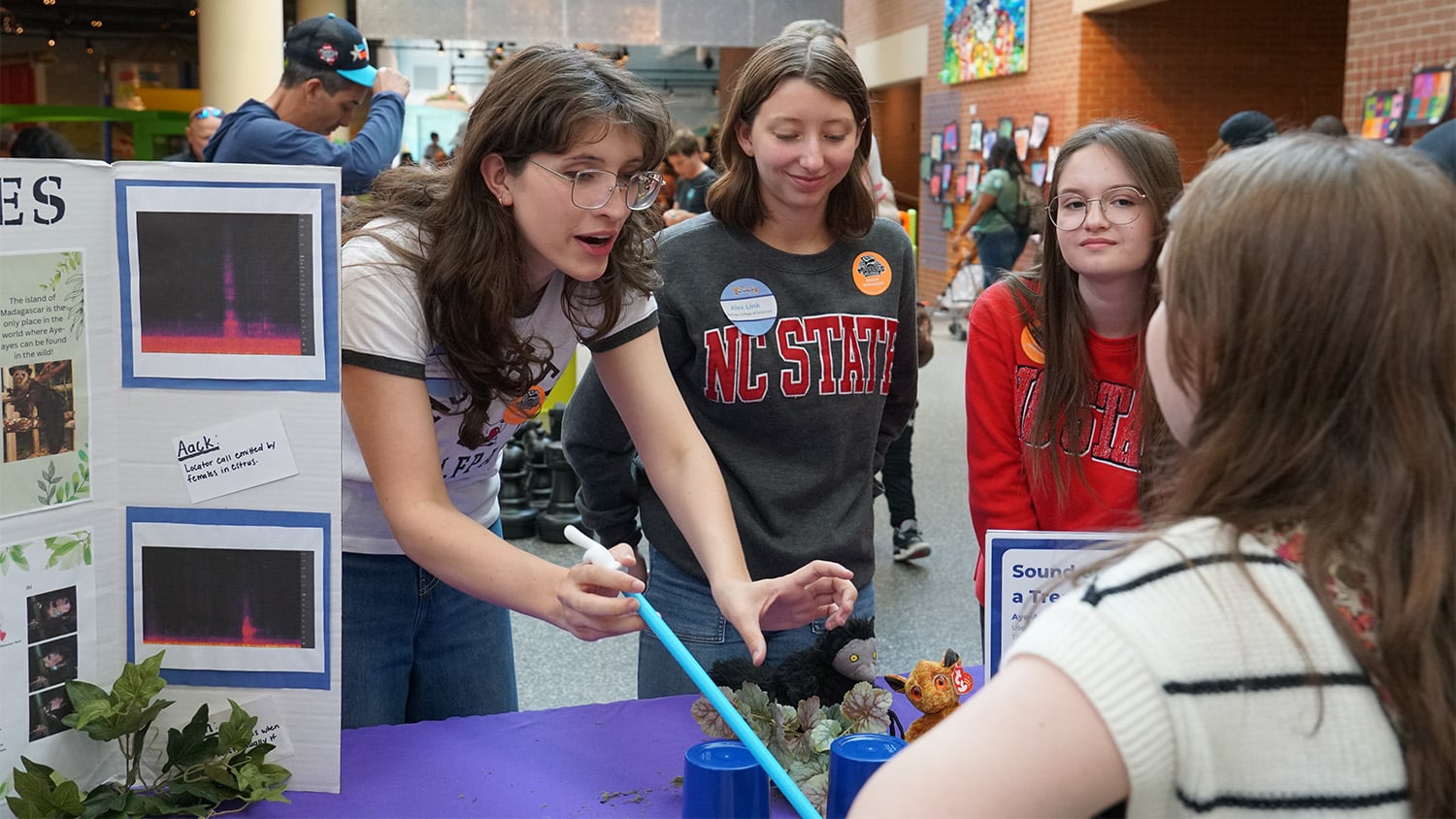Literacy and Community Initiative Shares Framework for Critical Literacy and Successes of Program in New Book
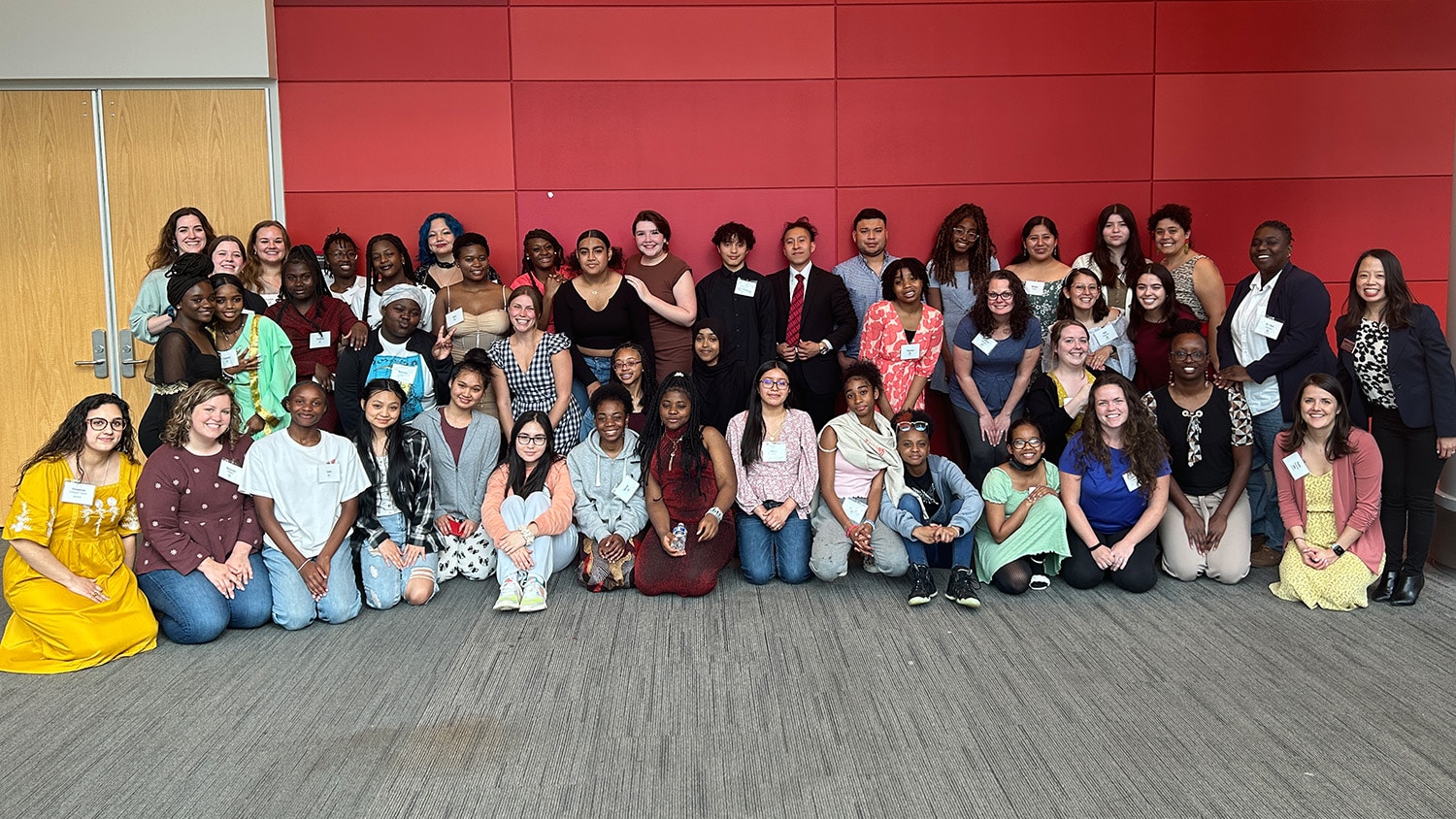
In 2018, NC State College of Education Associate Professor of English Education Crystal Chen Lee and Professor of Counselor Education and Friday Institute for Educational Innovation Deputy Director Jose Picart applied for funding to support the Literacy and Community Initiative (LCI), an idea to use critical literacy as a vehicle to amplify youth voices and experiences.
Now, several years later, LCI has grown through partnerships with four community-based organizations – Juntos NC, Bull City YouthBuild, CORRAL and Refugee Hope Partners – whose youth participants have authored more than a dozen books, written hundreds of pieces, including a peer-reviewed journal article, and presented their work at the North Carolina Museum of Art.
“We are proud of sustaining partnerships with community organizations that are doing powerful, meaningful and life-changing work in the lives of youth. We are most proud of the LCI students, who, year after year, demonstrate their bravery, resilience and hope in their writing, creative products, and their end-of-the-year readings and performances,” Lee said. “The way they engage with the community is beautiful, and we are honored to be a part of their journey.”
The success of the Literacy and Community Initiative and its critical literacy framework are outlined in a new book entitled Amplifying Youth Voices through Critical Literacy and Positive Youth Development: The Potential of University-Community Partnerships, which is written by Lee, Picart and recent College of Education graduate Jennifer C. Mann ’23PHD.
Drawing on data from the first six years of the program, the study presented in the book shows that youth who participated in the LCI program demonstrated improved literacy skills, enhanced social-emotional wellbeing, and increased community leadership and self-advocacy.
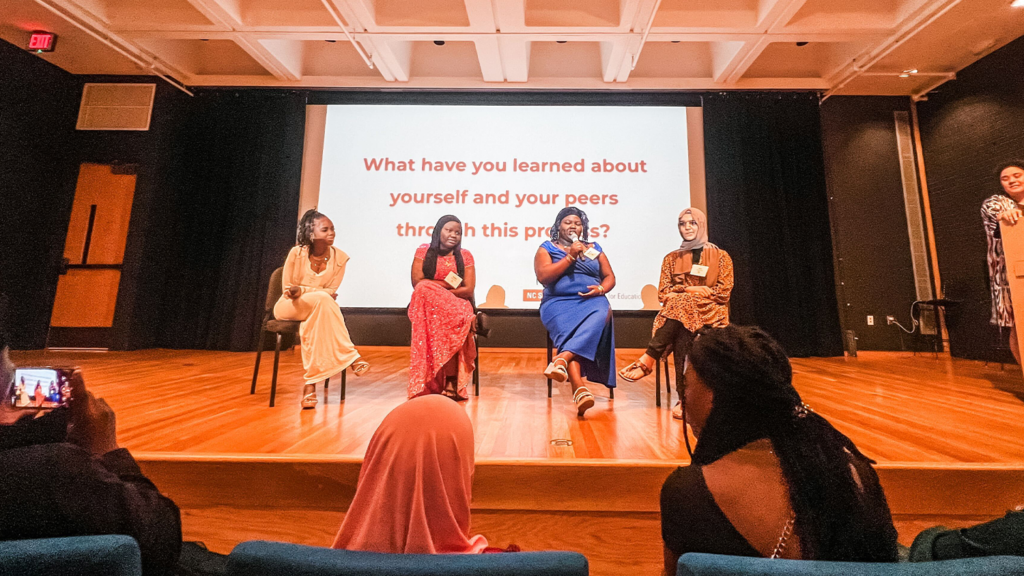
The book also presents a theoretical framework for the effective use of critical literacy to promote positive youth development, drawing on insights and lessons learned from the sustainment of the university-community research partnerships developed through LCI.
“We wrote the book because we wanted others to learn about our theory of change, our partnership relationships and our critical literacy framework to amplify youth voices in their own communities, “ Lee said. “We hope other organizations, educators and universities may learn from our framework to foster social-emotional growth and increase literacy skills in a way that centers students’ lives and identities.”
“It is my hope that those who read this book will see the strength in collaborating across fields and combining theoretical frameworks to strengthen potential outcomes,” Mann added.
Sharing Youth Success and Growth
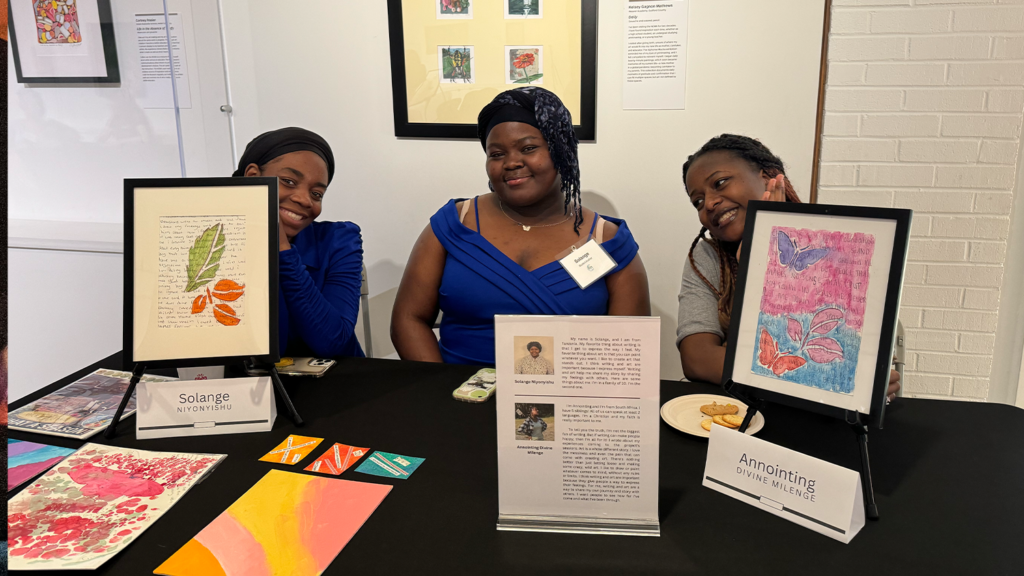
The critical literacy framework outlined in the new book, Picart said, demonstrates how the implementation of critical literacy practices with youth in a supportive and safe community can inspire them to write, lead and engage.
“The framework’s fundamental principles can be applied across a range of literacy experiences or modes that allow youth to express themselves and share their lived experiences. These experiences include performing arts, poetry, visual arts and film/video,” he said.
The LCI curriculum is developed and implemented collaboratively with each community-based organization in order to accurately reflect each one’s unique culture, context and practices. The program has also partnered with NC State College of Education Associate Professor of Literacy Education Angela Wiseman to incorporate more trauma-informed best practices.
Results presented in the book show quantitative examples that demonstrate growth in youth participants’ self-determination, self-efficacy and self-compassion, as well as in measures of social and emotional wellbeing.
“Youth participants exhibited a shift in their self-concept from participants into writers, and ultimately into author-leaders within their community,” said Caitlin Donovan ‘24PHD, a recent College of Education graduate who has worked with LCI and contributed to the book. “The joy, energy and future-orientation of writers after the reading events LCI hosted in collaboration with community partners testifies to the power of this process, as does the affirmation of the staff in the community-based organizations.”
Providing Experiences for Graduate Students
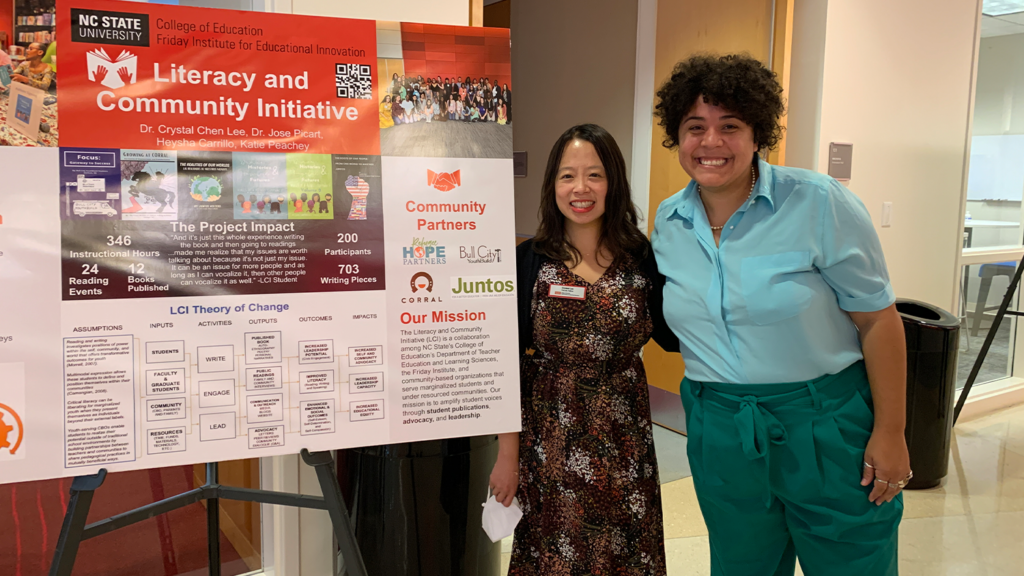
Donovan, a former secondary teacher who earned a Ph.D. in Teacher Education and Learning Sciences with a concentration in literacy and English language arts education, is one of several doctoral students and recent alumni who had the opportunity to work closely with LCI as well as contribute to chapters within the book.
For her, the opportunity to work with youth in the same age range as her former students helped to solidify her belief that her work as a researcher could continue to support the community she once served as a teacher.
Janell A. Miller, a doctoral student in the Ph.D. in Teacher Education and Learning Sciences literacy and English language arts education concentration, was similarly drawn to working with LCI as a way to maintain a connection with adolescents as she transitioned out of the classroom and into a career as a researcher.
“My experience in the program enabled me to see firsthand the importance of community partnerships and educational experiences outside of the school building,” she said. “Working with LCI helped me build connections while developing a humanizing perspective on collaborative research.”
Maria Heysha Carrillo Carrasquillo, a doctoral student in the Teacher Education and Learning Sciences educational equity concentration, who contributed to a chapter focused on working with Latine and immigrant youth, said that working with LCI has helped her to connect research to practice and inspired her to see herself as a scholar.
Katey Peachy, who is also a doctoral student in the Ph.D. in Teacher Education and Learning Sciences literacy and English language arts education concentration, was able to draw on her experiences with and connections made through LCI to conduct her dissertation research.
This experience, along with the opportunity to contribute to the book’s chapter focused on critical literacy and social-emotional learning with adolescent girls, helped her learn more about the process of writing scholarly publications, which she said has helped her as she embarks on other projects in her academic career.
“These experiences have been paramount for my identity and development as a scholar,” Peachy said.
Mann, who now works as a research scientist at Duke University, said working with LCI has “helped develop me into the researcher I am today.”
“I approach research in a highly relational way because LCI’s research is so relational and personal. I carried that with me,” she said. “I look for opportunities to make my research more reciprocal and more practical.”
Next Steps for the Literacy and Community Initiative
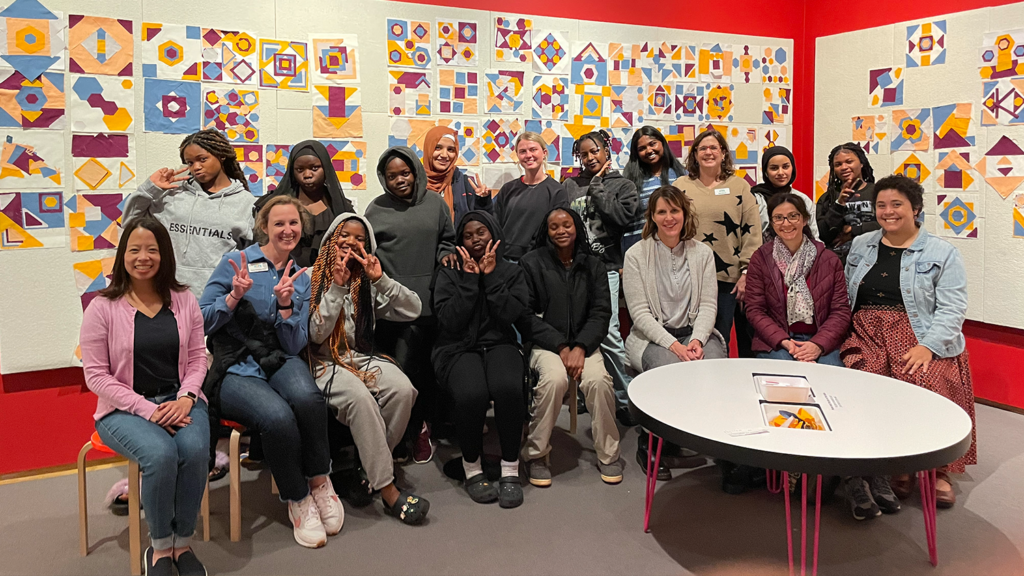
As the Literacy and Community Initiative enters a new academic year, Lee said they are looking to expand the program beyond their current model to have an impact on a national level.
The project team has already created a database that includes a national survey of refugee and immigrant students, as well as teachers and counselors who work with these students. This information will be combined with data gathered from LCI to offer professional development to community organizations and educators on best practices for working with immigrant and refugee students as well as multilingual learners in K-12 schools.
In addition, members of LCI are engaging in research related to how high school English language arts teachers are incorporating books LCI participants have authored, in their classrooms.
“There have been several book sets used in various 9th-12th grade classrooms in North Carolina, and we are interested in seeing how these books impact not only the teachers but also the students who read them,” Lee said. “Our LCI student authors have a wide reach and their books have become a part of the curriculum. We are excited that their voices can be amplified in K-12 schools.”
This post was originally published in College of Education News.
- Categories:


